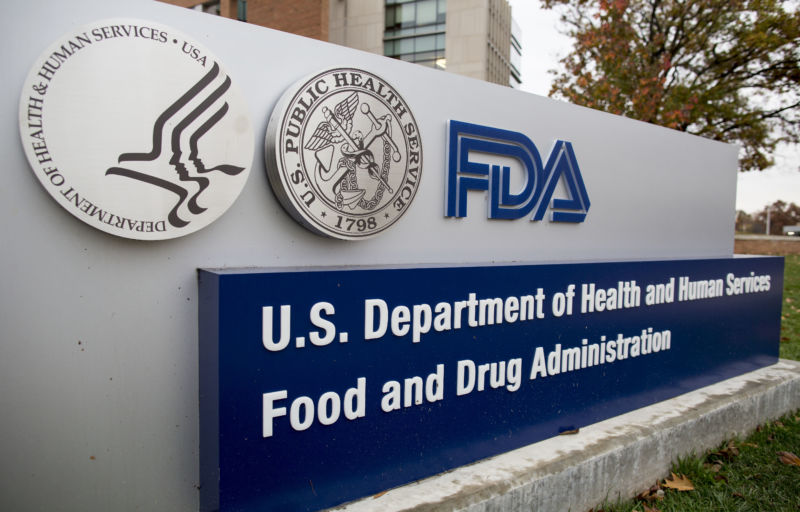

Three experts resign as FDA advisers over approval of Alzheimer’s drug
source link: https://arstechnica.com/science/2021/06/three-experts-resign-as-fda-advisors-over-approval-of-alzheimers-drug/
Go to the source link to view the article. You can view the picture content, updated content and better typesetting reading experience. If the link is broken, please click the button below to view the snapshot at that time.

fallout —
Three experts resign as FDA advisers over approval of Alzheimer’s drug
One former adviser accused the FDA of presenting “slanted” questions to committee.
Beth Mole - 6/11/2021, 10:07 PM

Fallout continues from the Food and Drug Administration’s contentious decision this week to approve Biogen’s Alzheimer’s drug Aduhelm (aducanumab) despite a lack of efficacy data.
Three experts who sat on an advisory committee for the FDA have now resigned over the decision.
The advisory committee reviewed the data behind Aduhelm last November and voted overwhelmingly against approval. Of the 11 advisers on the committee, 10 voted “no” on the question of whether Biogen had collected enough evidence to indicate that the drug is effective. The remaining adviser voted “uncertain.”Nevertheless, the FDA approved the drug on Monday. Though the regulator acknowledged that there are “residual uncertainties regarding [the] clinical benefit” of Aduhelm, the FDA said it decided to lower the requirements for approval after the advisory committee voted. Instead of basing the approval on the drug’s demonstrated efficacy, the agency relied on a “surrogate endpoint.” In this case, the surrogate is the ability of the drug to reduce amyloid beta plaques in the brains of some Alzheimer’s patients.
“This reduction in plaques is reasonably likely to result in clinical benefit,” Patrizia Cavazzoni, director of the FDA’s Center for Drug Evaluation and Research, wrote in a statement this week.
The approval and explanation riled advisory committee member Aaron Kesselheim, a professor at Harvard Medical School who is also director of the Program on Regulation, Therapeutics, and Law at Brigham and Women's Hospital. In a searing resignation letter sent to acting FDA Commissioner Janet Woodcock on Thursday, Kesselheim called the FDA’s decision "probably the worst drug approval decision in recent US history."
AdvertisementHe noted that the surrogate endpoint was not discussed by the advisory committee—in fact, he notes, the FDA told the committee specifically that it would not use amyloid beta plaque clearing as a surrogate for efficacy.
Slanted wording
Kesselheim also criticized other aspects of how the FDA oversaw the committee meeting, writing:
At our public meeting, concerns about trial data from one of the FDA’s own reviewers were not given adequate time for discussion, and some of the questions FDA asked the Committee to answer were worded in a way that seemed slanted to yield responses that would favor the drug’s approval.
Overall, he described the decision as a debacle and wrote that “it is clear to me that FDA is not presently capable of adequately integrating the Committee's scientific recommendations into its approval decisions." As such, he resigned from the committee on which he had served since 2015.
In resigning, he joins neurologists David Knopman of the Mayo Clinic in Minnesota and Joel Perlmutter of Washington University in St. Louis, both of whom also announced resignations this week.
As for the remaining questions about the efficacy of Biogen’s Aduhelm, the FDA required Biogen to conduct another clinical trial to assess the drug’s efficacy. If the company does not indicate that the drug is effective, the FDA could rescind the approval. However, Biogen has up to nine years to submit its data. Throughout that time, the drug can be prescribed to patients—at a list price of $56,000.
In an interview with Axios published Friday, Biogen’s chief medical officer, Maha Radhakrishnan, responded to the question of why the company hadn’t simply begun additional trials already, given the clear uncertainty in the data seen as long ago as 2019. Radhakrishnan said that the FDA didn’t ask the company to do so in order to earn approval.
Recommend
-
 28
28
How Penn State World Campus is leveraging AI to help their advisers provide better student services 2019-06-21admin
-
 6
6
Exempt Reporting Adviser Filing Requirements for Private Fund Advisers Under the Investment Advisers Act of 1940, investment advisers, including advisers to hedge funds and private equity funds (often referred to as “p...
-
 9
9
Are real estate fund managers required to be registered as investment advisers? July 13, 2011 by Alexander J. Davie After my recent post regarding
-
 8
8
May 1, 2021 ...
-
 10
10
Wise co-founder Kristo Kaarmann told to hire tax advisers Directors tell billionaire chief executive of money transfer company to use a tax adviser following HMRC fine for late payment
-
 8
8
SEC Proposes Overhaul of Cybersecurity Regulations for Private Fund Advisers
-
 4
4
Huawei board members resign over silence on UkrainePublished1 day agoRelated TopicsRussia-Ukraine war
-
 11
11
May 19, 2022 ...
-
 5
5
fourth shot — FDA advisers overwhelmingly endorse Novavax COVID-19 vaccine The company hopes it will sway vaccine holdouts to finally get their shots.
-
 13
13
Hallelujah — Moderna, Pfizer vaccines for under 5s overwhelmingly endorsed by FDA advisers Children under 5 may finally get FDA-authorized COVID-19 vaccines....
About Joyk
Aggregate valuable and interesting links.
Joyk means Joy of geeK